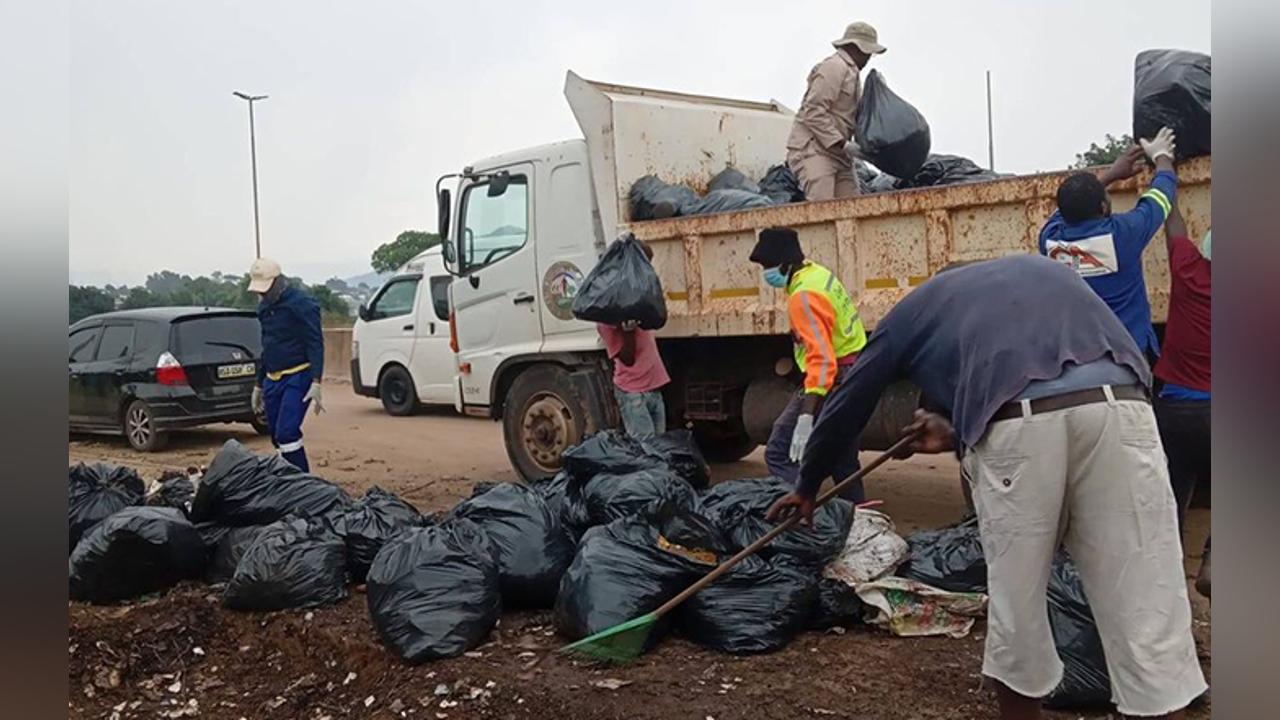By Bahle Gama
Eswatini Environment Authority (EEA) Environmental Information Officer Belusile Mhlanga says the country’s plastic levy as well as the importation and manufacture of plastic bags will now be regulated as of September 1.
In an interview, Mhlanga disclosed that the levy which was passed by Cabinet will allow for the regulation of single-use plastic bags by retailers to protect the environment.
According to Mhlanga, plastic bags may not be manufactured or imported in the country except only following the conditions of an import and manufacturer licence issued by the Authority in line with sub-regulation 4 (1) of the Regulations.
ALSO READ: UN adopts world’s first treaty to protect high seas biodiversity
She stated that the regulations are a result of the promulgation of the Control Plastic Bags Regulation implemented on May 21, 2021.
“Plastic bags shall be levied as per Regulation 8 of the Control of Plastic Bags Regulations, 2021. Twenty-four litres of plastic bags with a plastic film of less than 30 microns shall be levied at 25 cents per plastic bag.

Twenty-four litres of plastic bags with a plastic film above 30 microns shall be levied at 35 cents per plastic bag and a packet of 20 refuse or waste bags shall be levied 35 cents per packet,” she said.
Mhlanga further stated that all retailers countrywide are expected to register with the Authority where they are expected to remit plastic levy to the Eswatini Revenue Service (ERS).
On November 25, 2020, EEA in collaboration with Acc. Lab and the Ministry of Tourism and Environmental Affairs launched the Phatsa Sakho Nawe campaign which sought to address the reduction in the distribution of single-use plastic carry bags by major food retail outlets during the festive season, raise awareness of the adverse effects of single-use plastic bags on the natural environment, and encourage the sale and use of multiple use carry bags to be possibly sourced from local textile MSMEs.
The intention was and continues to influence the passing of the Plastic Bag Regulations Bill in Parliament which advocated for the introduction of the plastic bag levy with an option to completely ban single-use plastics.
The Lab, EEA and major food retail outlets undertook a solution mapping exercise to explore ways in which the distribution of single-use plastic carry bags in Eswatini can be minimized. A partial ban strategy was agreed upon as an experiment.
According to the United Nations Development Programme (UNDP), Eswatini has been grappling with the challenge of plastic waste pollution. This is reiterated by a 2016 survey by the EEA which indicated that three out of the five major retailers distributed about 1.9 million single-use plastic bags per month.
ALSO READ: Plastic levy to be remitted to Environment Fund
Approximately 60 per cent of these plastic bags were reportedly taken to landfills while the rest either pollute the aquatic ecosystem or the aesthetics of the natural environment.
Domestic animals, considered in eSwatini to be a symbol of wealth especially for rural smallholder farmers, have also been put at risk as they tend to ingest single-use plastic carry bags while trying to forage on discarded food they contain.
According to the UNDP, although the levy approach proved to be effective in reducing the distribution of single-use plastic bags by retailers, studies have shown that the effectiveness of the levy is price inelastic in the long run.


